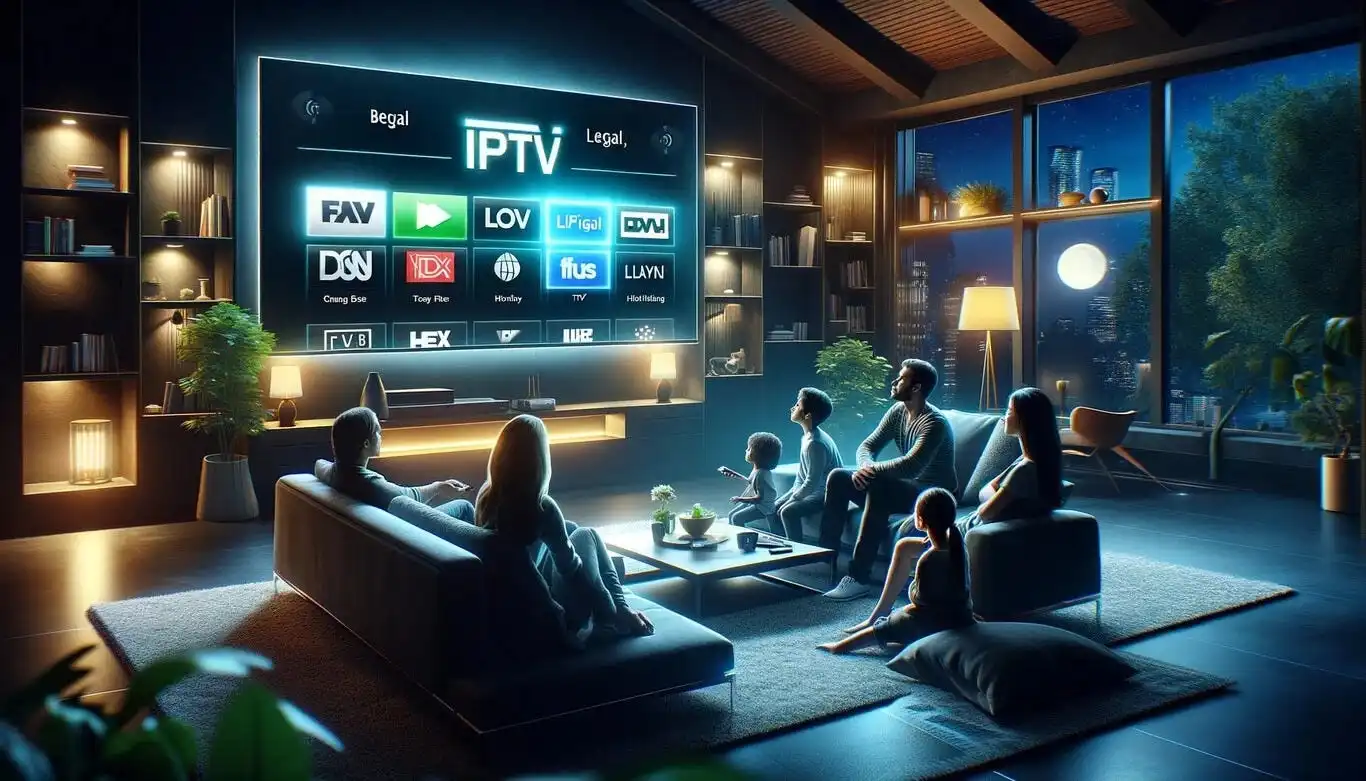[ad_1]
Television has undergone a tremendous transformation over the past few decades, evolving from traditional terrestrial broadcasts to the digital age, where content is delivered over the internet. In recent years, Internet Protocol Television (IPTV) has emerged as a significant player in this evolving landscape. This article delves into why IPTV subscriptions are not just a passing trend, but rather a mainstay of the future of television.
Understanding IPTV
IPTV refers to the delivery of television content over the internet using Internet Protocol (IP). Unlike traditional cable or satellite television, which relies on specific transmission methods, IPTV streams live television and on-demand content through broadband networks, making it more flexible and accessible.
The Mechanics of IPTV
IPTV operates by breaking TV content into packets of data that are then sent over the internet. This method allows users to access a variety of channels and services, including Video on Demand (VOD), catch-up TV, and more. As technology advances, IPTV has begun to integrate seamlessly with other internet-based services, enhancing the overall user experience.
The Shift Towards On-Demand Content
One of the most significant developments in how viewers consume media is the shift towards on-demand content. Traditional television schedules are becoming obsolete; viewers now prefer to choose what they watch and when they watch it. IPTV fulfills this demand by offering vast libraries of content that users can access whenever they like. The rise of streaming services like Netflix, Hulu, and Amazon Prime is a testament to this change in viewing habits.
Cost-Effectiveness and Flexibility
Another reason why IPTV subscriptions are here to stay is their cost-effectiveness. Monthly subscriptions tend to be cheaper than traditional cable packages, which can often include fees for services that are never used. IPTV services provide flexible pricing models, allowing consumers to choose bundles that suit their viewing habits and budgets.
The Benefits of Customization
IPTV platforms enable users to curate their viewing experience. By offering personalized content recommendations based on viewing history, users can discover new shows and channels that align with their interests. This level of customization is nearly impossible with traditional TV, where channels are predetermined and little attention is given to viewer preferences.
Innovative Features in IPTV Services
IPTV services are evolving, incorporating innovative features that make viewing more interactive and user-friendly. One example is the integration of cloud-based DVR functionality, which allows users to record shows and access them later without the need for physical storage devices. Other features include active pause, rewind, and different streaming quality options based on internet speed.
Interactivity and User Engagement
IPTV also enhances viewer engagement through interactive features. Many services offer real-time stats, polls, and social media interactions during live events, effectively transforming passive viewing into active participation. This interactivity resonates with the younger audience, whose engagement with content extends beyond mere consumption.
The Rise of Smart TVs and Streaming Devices
The proliferation of smart TVs and streaming devices such as Roku, Amazon Fire Stick, and Chromecast has further propelled the popularity of IPTV. As more households invest in smart technology, accessing IPTV becomes increasingly simple and intuitive. These devices often come with pre-installed IPTV applications, making it easy for users to toggle between live TV and on-demand content.
Compatibility and Accessibility
IPTV services are compatible with multiple devices including smartphones, tablets, computers, and smart TVs. This cross-platform accessibility means that viewers can watch their favorite shows from virtually anywhere, whether they are at home or on the go. The pandemic has further solidified this behavior, as more people seek entertainment in quarantine settings.
The Global Perspective on IPTV
IPTV is not only popular in North America but has also gained traction worldwide. In regions with limited access to traditional broadcasting, IPTV provides a viable alternative for viewing quality content. As internet infrastructure improves globally, particularly in developing countries, the reach of IPTV is expected to expand significantly.
Regulatory Challenges and Infrastructure Gaps
While the future of IPTV looks bright, there are challenges to consider. Regulatory concerns regarding the legality of content and the regions in which IPTV operates can complicate its acceptance. Additionally, in regions where internet infrastructure is lacking, the full potential of IPTV cannot be harnessed. As these hurdles are addressed, IPTV is likely to become even more ingrained in everyday viewing habits.
IPTV vs. Traditional Broadcasting: A Comparative Analysis
When comparing IPTV to traditional broadcasting, several key differences stand out:
- Delivery method: IPTV uses the internet, while traditional TV relies on satellite or cable signals.
- Content availability: IPTV offers on-demand content and programming customization, whereas traditional TV follows strict broadcasting schedules.
- Interactivity: IPTV services incorporate interactivity, allowing viewers to engage with content beyond standard viewing.
The Future of Television is Digital
The trend towards digitization, where viewers expect immediate access to content, signifies a shift that favors IPTV. As consumers become more accustomed to on-demand services and greater flexibility, IPTV is positioned to thrive. The growing library of available content, combined with an audience eager for unique viewing experiences, serves as fertile ground for IPTV growth.
Conclusion
In conclusion, the future of television is undoubtedly intertwined with IPTV subscriptions. These services offer consumers unparalleled flexibility, customization, and access to content across various devices, making them a permanent fixture in the entertainment landscape. As technology advances and internet infrastructure improves globally, IPTV will not only be a popular choice but the standard method for consuming television for years to come. The viewer’s desire for convenience and personalized entertainment will keep IPTV at the forefront of an evolving media ecosystem.
FAQs
What is IPTV, and how does it work?
IPTV (Internet Protocol Television) is a technology that streams television content over the internet instead of through traditional cable or satellite methods. It works by delivering video content using data packets over IP networks, allowing users to watch live TV and on-demand shows on multiple devices.
Are IPTV subscriptions cheaper than traditional cable?
Yes, IPTV subscriptions tend to be more affordable than traditional cable packages. They offer flexible pricing options, allowing consumers to choose plans that fit their budget and viewing preferences.
Can I watch IPTV on multiple devices?
Absolutely! IPTV services are compatible with various devices, including smartphones, tablets, computers, and smart TVs, enabling you to watch content anywhere, anytime.
Is IPTV legal?
The legality of IPTV services varies by region and the specific content being offered. It’s crucial to choose licensed IPTV providers to ensure compliance with regulations and to support content creators.
What are the advantages of using IPTV?
IPTV offers a range of advantages, including on-demand content, interactive features, user customization, the ability to watch on multiple devices, and often, lower costs compared to traditional cable services.
[ad_2]



